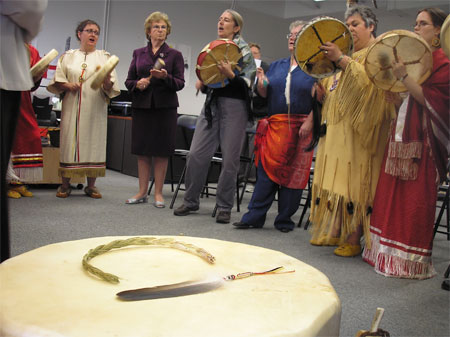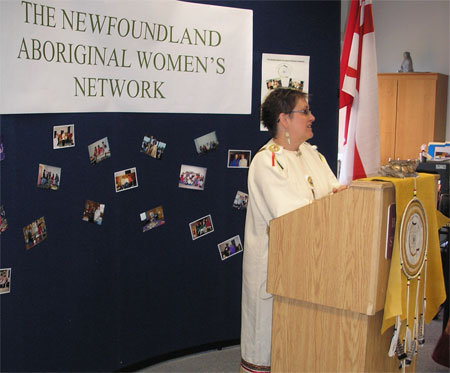
The Honourable Ethel Cochrane, Senator, brought greetings to NAWN on behalf of the Honourable Josée Verner, Minister of Canadian Heritage, Status of Women and Official Languages. She delivered the good news of funding for Phase II of NAWN’s current project, which will see a series of train-the-trainer workshops in western and central Newfoundland over 10 months. The senator, second from left, joins the women of NAWN for a celebration song.

Sheila Robinson, president of NAWN, speaks of the new NAWN project themed, Aboriginal Women on the Verge of Rising: Breaking Barriers; Building Strong Minds.